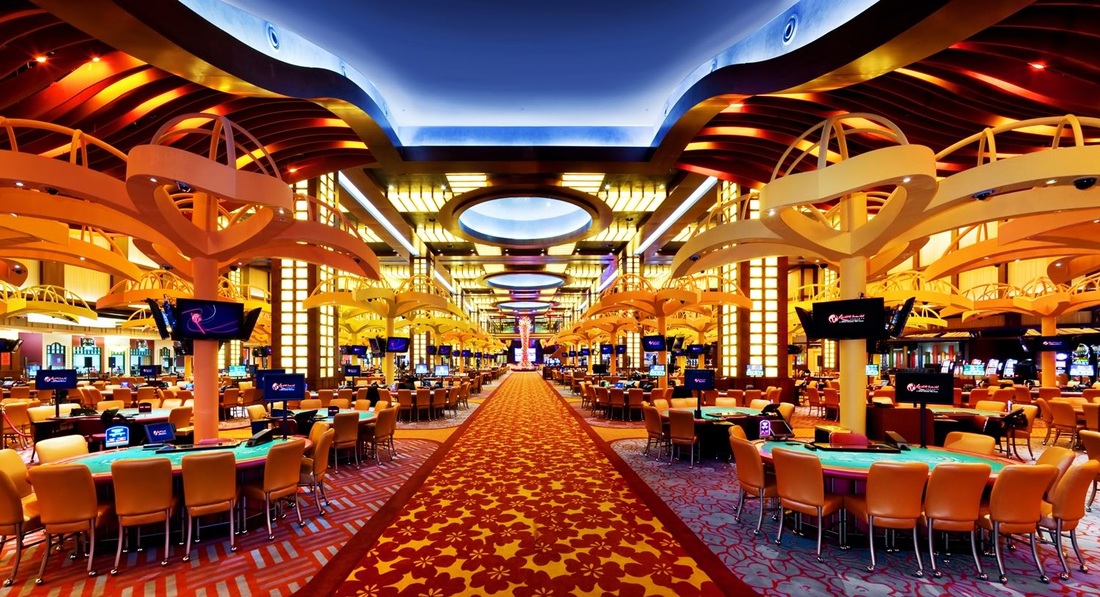
This allure of casino games has captivated huge numbers of people around the planet for ages. From the whirling roulette wheel to the noise of shuffling deck of cards, the rush of luck and expertise blends to create an exciting environment that attracts people in. pay4d These activities are not just leisure activities; they have evolved into an essential part of the cultural industry, evolving into a global phenomenon that encompasses opulent resorts, dynamic online platforms, and everything in between.
As the need for unique and immersive experiences persists to grow, the stories behind the triumph of gambling games reveal a intriguing realm. Businesspeople and designers are always pushing the limits of innovative thinking and innovation, leading to the rise of fresh entertainments and immersive tech. Delving into these accounts gives us insight into what it takes to establish a gaming business and the passion that motivates those operating behind the scenes.
The Evolution of Gambling Games
Casino games have a vast past that dates back centuries, with their beginnings often intertwined with historic ceremonies and social gatherings. The initial types of gambling can be traced back to long-ago China, where games involving dice were enjoyed, and also to the Romans who partook in betting on multiple events. Over time, these rudimentary forms of entertainment evolved into better organized forms, culminating in the establishment of games like baccarat and roulette in the 17th century. These initial gambling games laid the foundation for the industry we witness today.
As the world progressed, so did the complexity and variety of casino games. The 19th century marked a crucial milestone with the creation of official gambling establishments in locations like Monte Carlo and Las Vegas. This era saw the introduction of well-known games such as poker and blackjack, which fascinated the interests of participants around the world. The growth of these games was fueled by innovations in game design and the implementation of gambling laws that made the industry more organized and attractive to the public.
The digital revolution in the late 20th and early 21st centuries altered the landscape of casino games yet again. The emergence of the internet resulted in virtual casinos, enabling players to enjoy their beloved games from the comfort of their houses. This transition not only expanded the scope of casino games but also introduced new formats like live dealer games and mobile gaming apps. Today, the gambling game industry continues to evolve, with innovative technologies such as virtual reality and blockchain promising change the prospects of gambling.
Successful Game Development Techniques
The foundation of a successful casino game empire lies in the development of engaging and unique games that engage players. A winning strategy requires comprehensive market research to understand up-to-date trends and player preferences. By reviewing user feedback and observing high-performing titles, developers can recognize what connects with players and what features are in demand. Incorporating original themes, varied game mechanics, and aesthetically appealing graphics are crucial to stand out in a competitive landscape.
Partnership is a further key component of effective game development. Uniting talented designers, programmers, and mathematicians ensures that games are not only visually impressive but also fair in terms of gameplay. Encouraging clear communication among team members nurtures creativity and leads to cutting-edge concepts. Moreover, connecting with players during the beta testing phase allows developers to gather valuable insights that can fine-tune gameplay elements before the official launch.
Lastly, efficient marketing strategies cannot be ignored in creating a successful casino game empire. Developing a captivating narrative around the game and utilizing online media platforms to create excitement can greatly impact player acquisition. Offering deals, loyalty rewards, and participating in community events can further enhance player retention. By blending strong development practices with astute marketing, game developers can create an immersive experience that keeps players returning for additional.
The Future of Gambling Gaming
The environment of casino gaming is evolving quickly, driven by developments in tech and evolving consumer tastes. Digital and portable play is poised to dominate the industry as more gamblers seek ease and availability. Virtual VR and augmented reality are also making their way into the gambling experience, providing immersive environments that elevate traditional gaming to a different standard. As players crave more participatory and engaging interactions, casinos will need to change and evolve to keep their customers interested.
Additionally, the integration of artificial intelligence and information analysis will play a significant role in shaping the prospects of casino games. Casinos will leverage information to understand player actions, customize experiences, and boost customer service. Customization will become essential, as players will demand games that modify to their preferences and gaming habits. As the gaming industry makes use of these understandings, the development of new play formats and features will probably arise, keeping the casino experience new and exciting for all.
Moreover, the movement towards responsible gaming is becoming increasingly notable. As regulators and players focus more on gambler well-being, casinos will need to adopt measures that encourage safe play practices. This could include features that allow gamblers to set limits on their expenses and time spent playing, as well as better resources for those who may be struggling with gambling issues. By prioritizing safe gaming, casinos can build trust with their clientele and ensure a viable future in the competitive landscape of gambling gaming.
